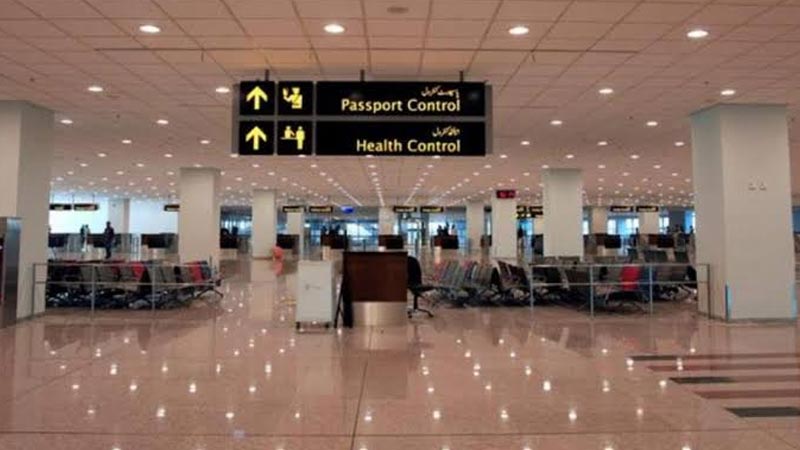
They flew to Doha from the virus-hit country and then headed towards Pakistan. They were screened upon arrival at the Peshawar airport.
According to private television channels, the individuals have been shifted to an isolation ward.
They will be quarantined for a 14-day period as part of safety measures to block possible transmission of the deadly disease. It is to be mentioned here that around 30,000 Pakistani students, enrolled at various Chinese academic institutions, are currently present in China.
Talking to the media, one of the students said that he had exited the city before it was sealed by the authorities. He reached Shanghai from Wuhan on January 22 and later to Dubai and returned to Karachi. “People are frightened from the outbreak in China and 559 Pakistani students have been stranded in Wuhan province,” the student said.
Pakistani students in China are very anxious due to the deadly outbreak, he said. The Chinese authorities are properly taking care of Pakistanis, he further said. “I was allowed to leave after the required medical tests.”
Meanwhile, a Chinese suspected of contracting Wuhan novel coronavirus (2019-nCoV) at the Lahore airport after arriving from Karachi on Sunday has been rushed to an isolation ward at Services Hospital for medical attention and tests. Reportedly, the airport staff conducted Deming Yao’s medical check-up when his nose began bleeding while waiting at the airport lounge for his flight to China via Lahore. He was taken to the Services Hospital’s isolation ward. On the other hand, China imposed a lockdown on Sunday on a major city far away from the epicentre of a coronavirus epidemic, as its death toll from the disease soared to 304.
The events added to deepening concerns about the potential for the virus to spread, as more governments around the world closed their borders to people from China. Since emerging out of the central Chinese city of Wuhan late last year, the coronavirus has infected nearly 14,500 people across China and reached 24 countries.
Many of the infections overseas have been of people who had travelled from Wuhan, an industrial hub of 11 million people, or surrounding areas of Hubei province.
The person who died in the Philippines was a 44-year-old man from Wuhan, according to the World Health Organisation, which has declared the epidemic a global health emergency.
China has embarked on unprecedented efforts to contain the virus, which is believed to have jumped to humans from a Wuhan animal market and can be transmitted among people in a similar fashion to the flu.
Those efforts have included extraordinary quarantines in Wuhan and surrounding cities, with all transport routes out banned, effectively sealing more than 50 million people.
But 10 days after locking down Wuhan, authorities on Sunday announced similar draconian curbs on people movement in Wenzhou, 800 kilometres. Wenzhou is a coastal city of nine million people in Zhejiang province, part of the eastern industrial heartland that has powered China’s economic rise over recent decades.
Only one resident per household is allowed to go out every two days to buy necessities, and 46 highway toll stations have been closed, authorities announced. The city had previously closed public places such as cinemas and museums and suspended public transport.
Zhejiang has 661 confirmed infections, with 265 of those in Wenzhou, according to the government. This is the highest tally for any province in China after ground-zero Hebei. Internationally, governments continued their efforts to erect virtual borders against the disease.
The United States, Australia and New Zealand have banned foreign nationals from visiting if they had been in China recently, and warned their own citizens from travelling there.
Mongolia, Russia and Nepal closed their land borders, while Papua New Guinea went as far as to ban anyone arriving from ports or airports across Asia. The news of the man’s death in Manila on Sunday was released shortly after the Philippines said it would immediately halt the arrivals of any foreign travellers from China. The number of countries reporting infections rose to 24 after Britain, Russia and Sweden this weekend confirmed their first cases. The death toll in China climbed to 304 on Sunday after authorities reporting 45 new deaths from the previous day. There were 2,590 new confirmed cases in China, bringing the total to nearly 14,500. The number of confirmed infections in China is far higher than the Severe Acute Respiratory Syndrome outbreak of 2002-03. SARS, which is caused by a pathogen similar to the new coronavirus and also originated in China, had killed 774 people worldwide – most of them in mainland China and Hong Kong.













